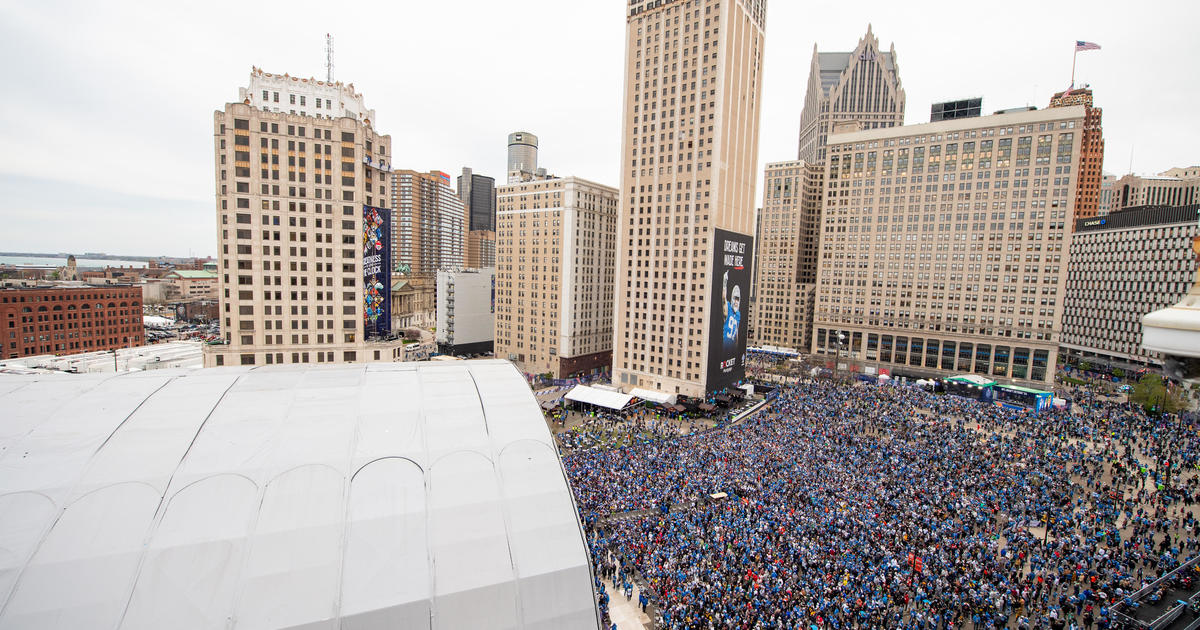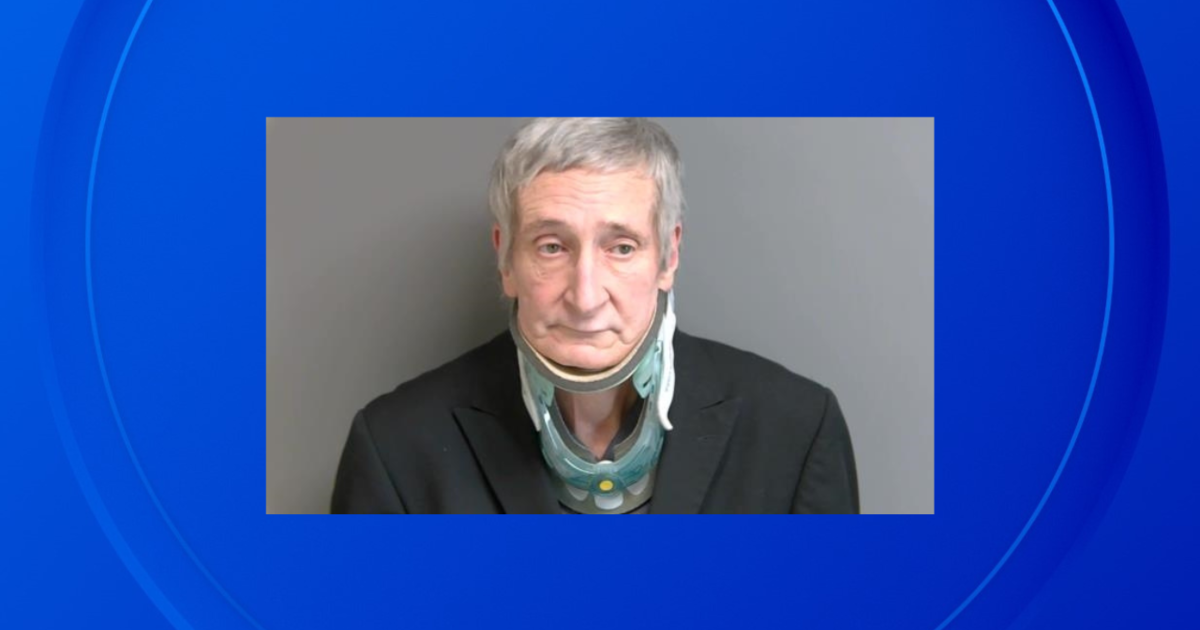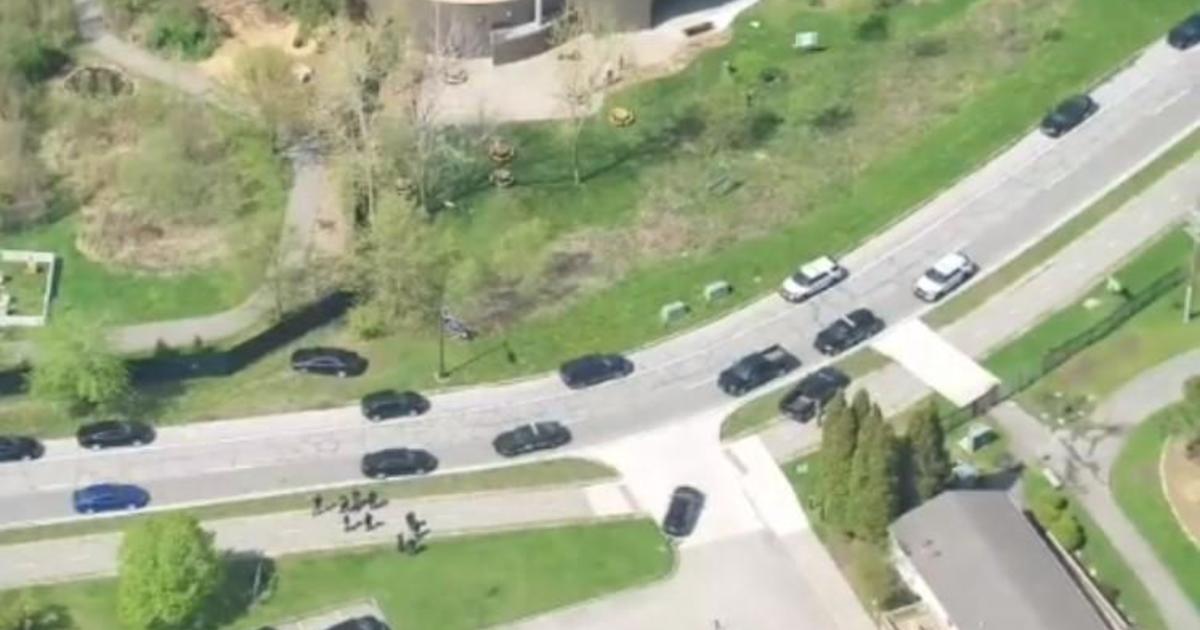Gordie Howe's Son Says Dad's Recovery No Fluke, Excited For Future Of Stem Cell Treatment
By Ashley Dunkak
@AshleyDunkak
CBS DETROIT – Murray Howe, the head of the radiology department at ProMedica Toledo Hospital, understands the skepticism of those who question the stem cell treatment his father Gordie, also known as Mr. Hockey, received in December in Tijuana, Mexico.
Gordie's health had been slowly declining even before the stroke he suffered in late October, and he was essentially bedridden when Murray and his brother Marty took him to Mexico to participate in a clinical trial. They did not have high hopes – "he was so far gone," Murray recalled – but after each step of the two-part process, Gordie improved rapidly, once again able to walk and talk, repossessed of his wit and humor. Murray and his siblings were floored. So were the therapists who had been working with Gordie after his stroke.
Some physicians have scoffed at the idea of stem cells helping an individual who has had a stroke, but Murray – a doctor himself – says his father's recovery after treatment opened his eyes to stem cells as a potential game-changer.
"Speaking as a medical professional, it's so frustrating when you can't really do anything for a patient," said Howe, the head of the radiology department at Toledo Hospital. "You give them kind of a death sentence and you say, 'Well that's all you get. There's nothing we can really offer.' It's so sad. So now to be able to have – on the brink of some huge hope for these patients is really, really exciting. As a medical professional, to me, there's never been anything more exciting in my entire career than this."
Murray does not blame people for being skeptical, and he agrees more research on the capabilities of stem cells is needed to show definitively what they can do. To say Murray is optimistic, however, would be a serious understatement.
"There's quite a few individuals out there who are calling themselves stem cell experts or this or that, kind of saying that there's no data to support that stem cells work on ischemic strokes, but that's really not true at all," Murray said. "There's at least 50 clinical studies that are going on across the world … that are demonstrating its safety and working on demonstrating its efficacy, and the preliminary results on the ones that I've seen are tremendous, so the data is clearly there. I think that people across the world in the next couple years are going to be as blown away as I was with our father when they see the power of stem cells and what they do for patients with not just stroke but with dementia and traumatic brain injuries and spinal cord injuries.
"My dad's case is by no means the only one," Murray continued. "He's kind of like in the middle. There's examples of patients that have had a far greater result. I'm so thrilled for my dad, but by no means was my dad a fluke or a random event. The studies are ongoing, and I think the point of any of the, I guess, naysayers is that Gordie Howe may be anecdotal and we need more research, and I totally agree with that. In fact, based on what we've seen with my father, I would say that we as a country and as a world should make a concerted effort to put as much time and energy as we can into investigating the power of stem cells because I really think that based on what I'm seeing this is going to be a game-changer for medicine and a game-changer for quality of life for so many people that have non-option diseases like stroke or dementia."
Heading to Tijuana for treatment was a last-ditch effort to save Gordie, but it was not one the family undertook on a whim, Murray said.
"I'm well aware of hucksters and con games and this type of thing, and our family has never been about traveling the world to find the miracle cure," Murray said. "I'm a very mainstream physician. I've always relied heavily on data and on long-term studies to prove the safety and efficacy of any treatment. For our father, we just – our goal has always just been quality of life and comfort. When my mom was sick with her dementia … that was our only priority was just keep her comfortable, keep her healthy, as healthy as possible, and keep her safe, and that was it. We had a number of people contact us saying, 'You know, we could help your mom with this pill and that pill,' and I looked at everything that anybody presented to us, but to me there was nothing that showed any data that would – made me want to experiment, if you will, with my mom."
However, the research Murray did on Stemedica, the company that makes the stem cells used to treat Gordie, showed promise. Besides, the family had nothing to lose. For one, Stemedica and Novastem – the clinic where the procedure would be performed – told the family they would work on Gordie free of charge. The treatment would have cost between $32,000 and $40,000, Murray said.
The main reason the Howe children decided to take Gordie to Mexico, however, was that they did not believe their dad would last much longer if they stood pat.
"We knew that if we didn't do anything he would be dead within a couple of weeks because he would not want to live the way he was living," Murray said. "Just laying in a bed, that's just not him.
"We were hoping for the best, but we expected nothing," Murray added. "To me, my goal was to get my dad back home without him dying in California or Mexico. As a family, we talked about it, we said, 'What happens if he dies in Mexico and we can't get him out of the country or whatever?' We were trying to think of all the worst-case scenarios, of what we would do. We just talked about that and we just said, 'It's unlikely,' but we really wanted to give our father this opportunity."
Some have criticized Murray for talking so glowingly of Stemedica and Novastem, but it does not bother Murray that both organizations have gotten significant recognition. The way he sees it, who would not talk about the place that saved a loved one?
Murray estimated he has done 25 interviews already about his dad's treatment. In addition, he has fielded approximately 40 more personal inquiries – people asking whether the treatment might work for their loved one.
The current cost – between $15,000 and $40,000 depending on the ailment, Murray said – would be prohibitive for many, but Murray estimates the cost could drop to around $5,000 in the next five to 10 years. It is his hope that the treatment that restored his father's health will soon be able to help more people.
"My father's always taught us that we belong to the people, we're a part of the community, and any gifts that we have, God gives them to share with others, and so I just feel that it's kind of my role and my privilege and my honor to be able to share what I saw and what I know as a physician with others in hopes that it will help some people and give hope to some people and if nothing else to just advance this great technology further so that we can get more people to be helped by it and to know what it can do and what it can't do and all that," Murray said. "I'll give as many interviews as people wish. It's a privilege to do so."



